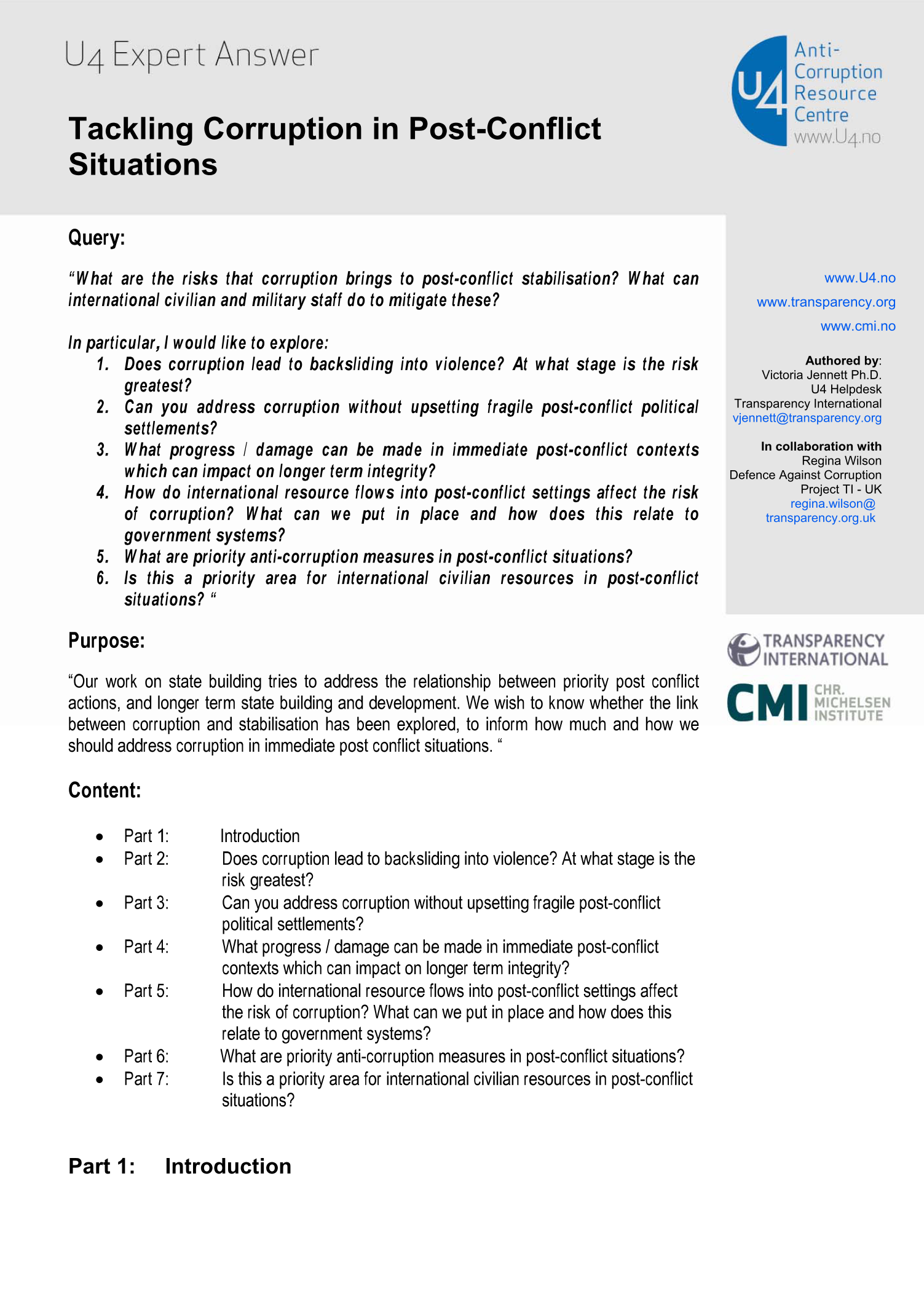U4 Helpdesk Answer
Tackling corruption in post-conflict situations
In wartime, corruption may be a strategy for ordinary people to survive and for armed faction to sustain power structures that serve their interest. As such, corruption triggers political unrest and facilitates conflict escalation. As a result, the challenges of tackling corruption in post-conflict situations are considerable, especially at the outset, when confusion reigns, institutions are being built and huge resources flow often into the country for reconstruction. Anti-corruption reforms in post-conflict situations should focus on gaining public support for reform by restoring the people’s trust in institutions, providing an appropriate economic and regulatory context and securing a legal framework for transparency and accountability. Special attention should be given to tackle corruption in both the security and judiciary sectors, to strengthen the new regime legitimacy and prevent backsliding into violence.

Cite this publication
Jennett, V. (2007) Tackling corruption in post-conflict situations. Bergen: U4 Anti-Corruption Resource Centre, Chr. Michelsen Institute (U4 Helpdesk Answer Helpdesk 2007)
Disclaimer
All views in this text are the author(s)’, and may differ from the U4 partner agencies’ policies.
This work is licenced under a Creative Commons Attribution-NonCommercial-NoDerivatives 4.0 International licence (CC BY-NC-ND 4.0)